How is Nov 29 Sabah election shaping up and what are key issues at play?
Two days before polling, CNA reports from Sabah on how the key parties are positioning themselves and the hot button topics that have come up during the hustings.
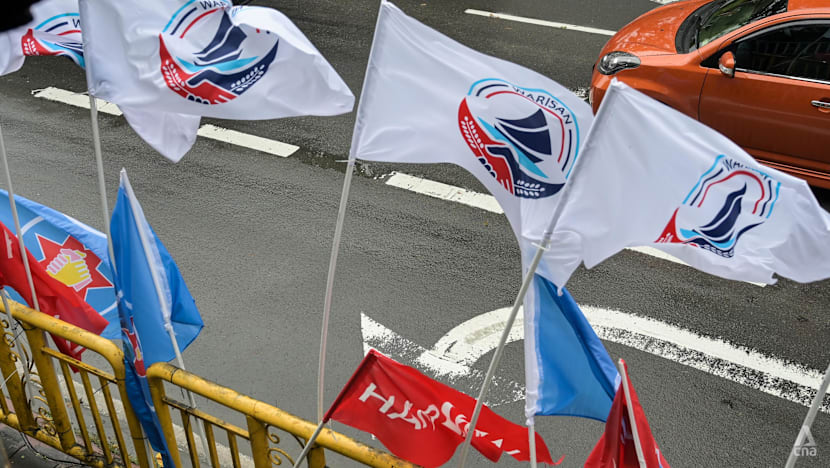
Party flags by the road in Kota Kinabalu ahead of the 17th Sabah state election on Nov 29, 2025. (Photo: CNA/Fadza Ishak)

This audio is generated by an AI tool.
KOTA KINABALU, Sabah: In the quiet suburban district of Darau, a roughly 20-minute drive from Malaysia’s Sabah state capital of Kota Kinabalu, pulsating house music reverberated from a large white tent.
It was not a dance party but the culmination of a one-hour election rally by the incumbent Gabungan Rakyat Sabah (GRS) coalition, as its chairman Hajiji Noor - the Sabah chief minister - took his leave to cheering crowds and spinning LED lights.
“In Sabah, we don’t give another chance to those who previously failed,” Hajiji had earlier said, taking another dig at GRS’ bitter rival Warisan and eliciting roars of approval from the partisan audience.
Political foes amped up the rhetoric on Wednesday (Nov 26) as the campaign entered its home stretch, trading blows as relentlessly as the heavy downpours that have pummelled parts of the state.
CNA is on the ground ahead of Polling Day on Saturday, when over 1.7 million Sabahans will vote for their next state legislative assembly.
The election is seen as an early test of support for Prime Minister Anwar Ibrahim’s federal government, which must hold the next national general election by February 2028. GRS is allied with Anwar’s peninsula-based Pakatan Harapan (PH) coalition in Sabah.
Some 7km away from Darau at a coffee shop in Likas, a constituency with a large base of Chinese voters, Warisan president Shafie Apdal had his say.
“The GRS claims to be a united front for Sabahans, but it is not a united front for the people of Sabah. It is a united group of corrupted people,” he said, drawing loud applause from supporters.
GRS and Warisan have emerged as frontrunners in this year’s election, according to analysts, and the two camps on Wednesday deployed heavyweights to support their candidates in enemy territory.
GRS is trying to wrest Darau from Warisan, while Warisan is looking to make inroads in Likas, held by GRS ally PH.
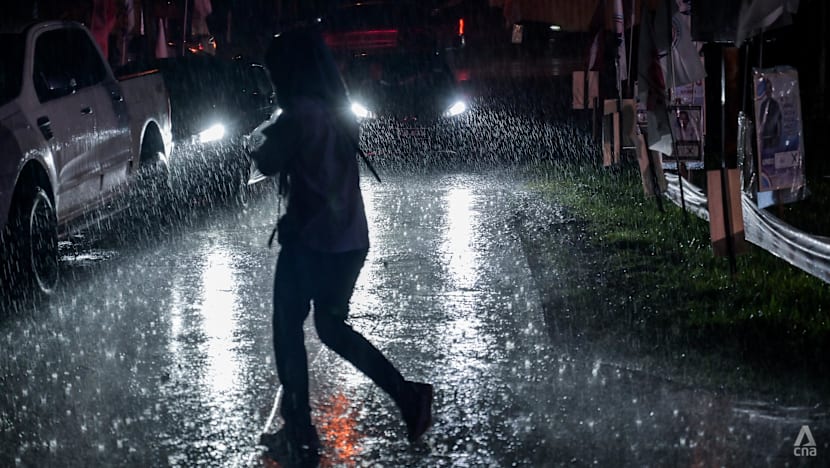
“No more alliance with any KL (Kuala Lumpur) party, we must ally ourselves with Sabahans,” Shafie said, eventually moving down from a stage to stand among the tables of diners watching him.
This election is a “turning point” that could reshape Sabah’s political landscape - one that would no longer be dependent on parties from West Malaysia, he insisted.
Back in Darau, Hajiji upped the stakes.
“This election is the most important moment to determine Sabah’s future,” he said. “GRS offers stable politics based on development and unity.”
As online sentiments favouring local over national parties continue to feature prominently this campaign, West Malaysian coalitions like PH and Barisan Nasional (BN) appear to be losing steam, observers told CNA.
But these pacts as well as other Sabah-based parties and independent candidates are still expected to win a few seats, making a simple-majority victory for GRS or Warisan unlikely, analysts said.
Sabah-based parties include Parti Solidariti Tanah Airku (STAR), United Progressive Kinabalu Organisation (UPKO) and Parti Kesejahteraan Demokratik Malaysia (KDM).
Still, analysts said it is difficult to predict precise election results as the campaign this year has shifted largely online - as opposed to traditional mega rallies - in the post-pandemic era, especially as voters start sifting through bloated candidate lists in their constituencies.
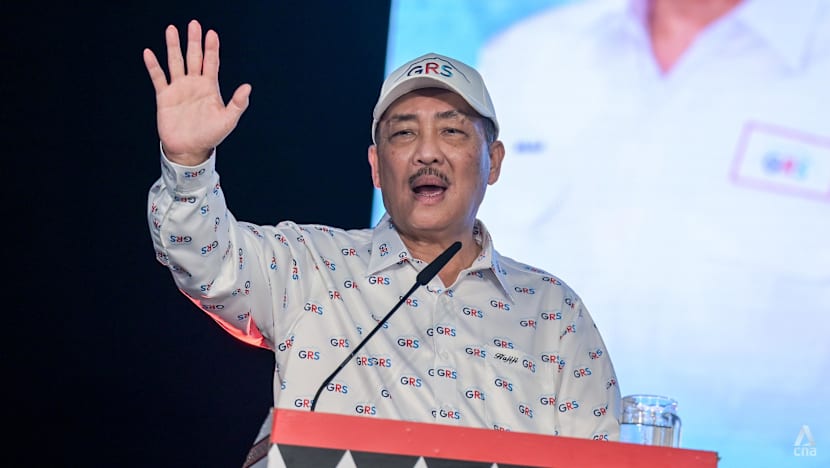
A bumper crop of 596 candidates, including 74 independents, are fighting for the 73 elected seats in the 79-seat state legislative assembly. The remaining six seats are appointed by the governor.
Issues that continue to dominate the hustings are Sabah’s long-standing water, electricity and road problems, as well as the state's entitlement to 40 per cent of the revenue it contributes to the federal government - both matters that touch on the local versus national party debate.
MINING CORRUPTION SCANDAL
Another matter that has so far simmered under the surface came to the fore on Wednesday – corruption allegations linked to the GRS administration and heightened scrutiny of the federal government.
Malaysia’s anti-graft agency on Wednesday said it would investigate a businessman’s allegations that he had given bribes to a senior aide of Anwar. This came shortly after the aide, senior political secretary Shamsul Iskandar Mohd Akin, announced his resignation.
Albert Tei, the businessman at the heart of a corruption scandal that first surfaced in 2024 involving mining projects in Sabah, claimed that he had channeled funds totalling RM629,000 (US$152,263) to Shamsul Iskandar.
Tei also claimed he was ordered by Anwar himself to record videos previously released last year, involving several Sabah politicians, including state ministers and assemblymen from GRS, concerning mineral exploration licences in Sabah.
Asked whether the latest developments could give Warisan a boost, Shafie said it was not for him to say.
“Let the authorities investigate, let the law be enforced,” he told reporters on the sidelines of the Likas rally.
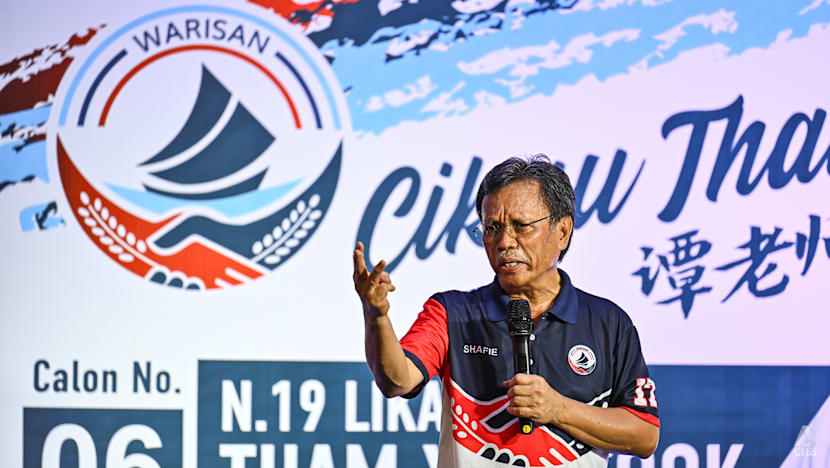
Bridget Welsh, from the University of Nottingham Asia Research Institute Malaysia, told CNA that the latest allegations would “impact PH the most” and could “significantly” reduce its chances at the polls.
“The scandal has been impactful in the urban areas but not so much in the semi-rural areas. So, my expectation is that GRS will not be as badly impacted as PH,” she said.
James Chin, Asian studies professor at the University of Tasmania, said in a Facebook post on Wednesday that Tei’s allegations have “so far failed to gain any real traction”.
“In my view, these allegations will actually carry far greater weight on the peninsula than in Sabah itself, mainly because Shamsul is Anwar Ibrahim’s chief political advisor,” he wrote.
“For those already convinced the government’s ‘reformasi’ (reform) agenda is dead, this is simply another nail in the coffin.”
Separately, Chin told CNA that GRS and Warisan “seem to be head to head” in the lead up to polling day, while PH and BN were “losing steam”.
But he said much of the campaigns have shifted online and it was tough to assess how effective they were, with only metrics like social media engagement to rely on.
A survey by the Borneo Electoral Geopolitics Research Unit at University Malaysia Sabah found that 45 per cent of respondents aged 18 to 60 turn to social media for political information, far surpassing the 25 per cent who rely on traditional electronic media, Bernama reported.
Haryati Abdul Karim, of the UMS geopolitics research team, said that WhatsApp is the most favoured social platform among Sabah voters, with 42 per cent using it for political content, followed by TikTok at 36 per cent.
Added Chin: “So, (the election is) really, really difficult to predict. In fact, I would say that the most that people can predict is for maybe up to 20 seats. The other 50-plus are really up in the air.”
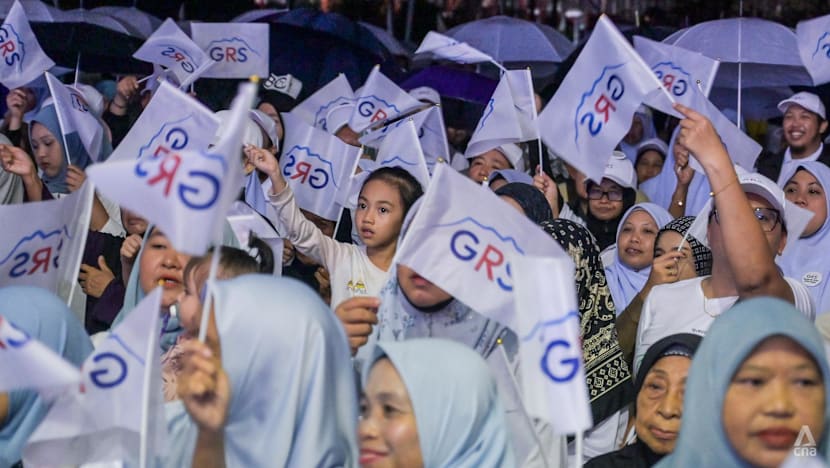
LOCAL VERSUS NATIONAL PARTIES
Still, political analyst Lee Kuok Tiung from UMS feels GRS is ahead of Warisan as the former does not bank as heavily on a single leader like Warisan president Shafie.
“GRS has more leaders. They don't rely entirely on one leader to attract the crowd,” he told CNA.
While UMS senior lecturer Romzi Ationg agreed that early polling seems to “favour” GRS, he said this does not guarantee them a “blanket” win as a “huge bloc” of undecided voters remains.
“Warisan, while behind in some numbers, still has significant leverage via its messaging on infrastructure, cost of living, corruption and Sabah identity,” he said.
“The competition is less about big ideological battles and more about who can deliver on economic and service issues, and which leaders voters trust more.
“Because of the fragmentation in Sabah politics, post-election negotiations will likely be just as important as the vote itself.”
On the other hand, the main challenge for PH and BN is the “rise” of the local-party sentiment, Lee said.
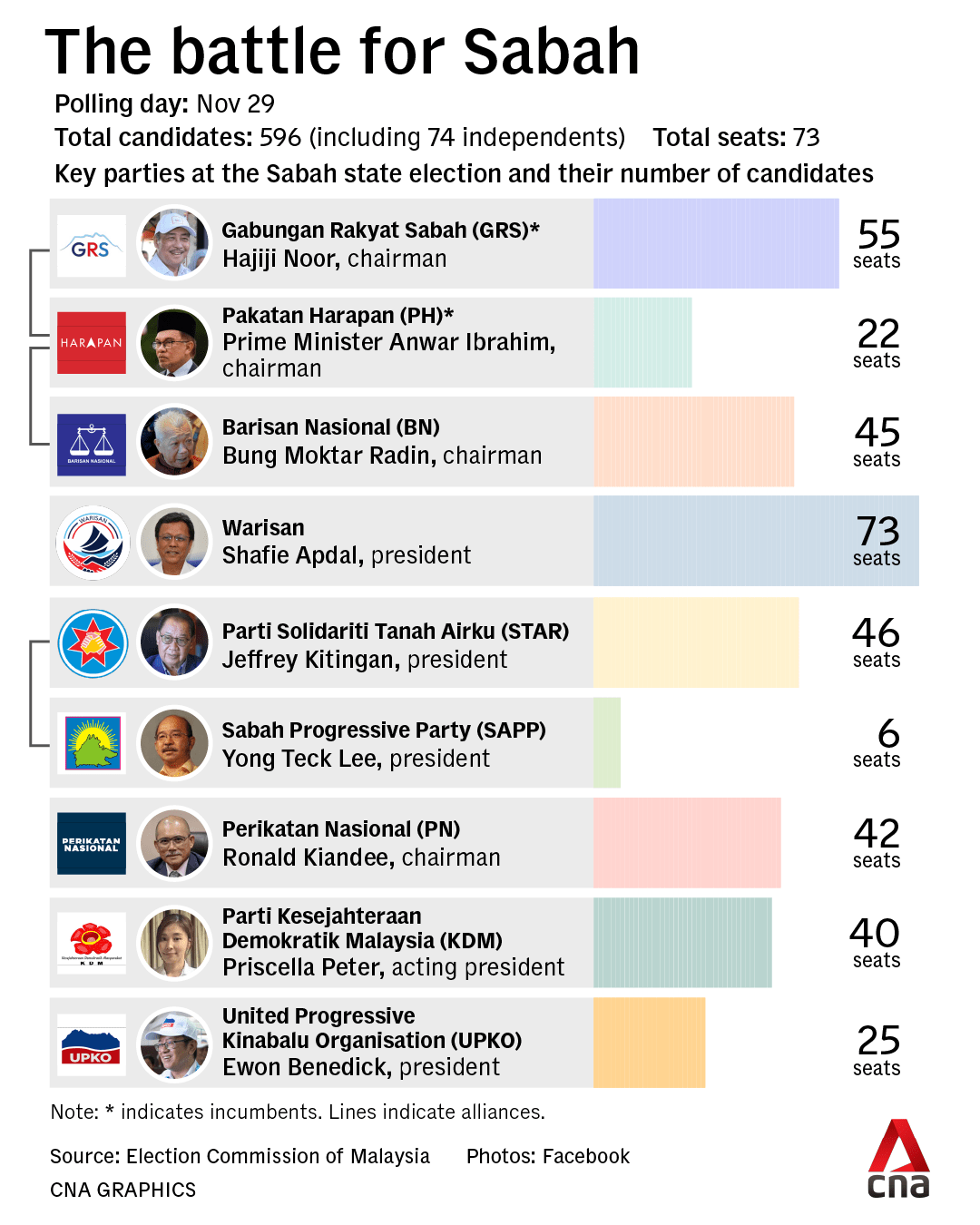
Analysts said the “Sabah for Sabahans” idea has become a crucial issue this election, with some politicians calling for the state to be exclusively governed by local parties after decades of perceived neglect by the federal government.
“Sabah for Sabahans issues are really big this time. I would say it's even bigger than back in 2020 (during the last state election),” Chin added.
Lee said that the Sabah for Sabahans sentiment could affect PH and make it more “complicated” for its component parties such as the Democratic Action Party (DAP) to improve their performance from the last election.
In the 2020 Sabah election, DAP won six seats while in an alliance with Warisan.
For instance, there could be a “major showdown” between Warisan and PH in the seat of Tanjung Aru in Kota Kinabalu, said UMS associate professor Anantha Raman Govindasamy.
Warisan vice-president and incumbent Junz Wong is in a nine-way fight against DAP heavyweight Chan Foong Hin - federal MP for Kota Kinabalu - and other candidates.
Chin from the University of Tasmania believes PH is lagging behind GRS and Warisan as the peninsula-based coalition’s election machinery is “not performing up to its peak” while trying to grab “additional seats”.
PH is also in separate pacts with GRS and BN, meaning PH largely does not contest seats where GRS or BN has fielded candidates. However, a handful of seats will see what the coalitions have called “friendly fights”.
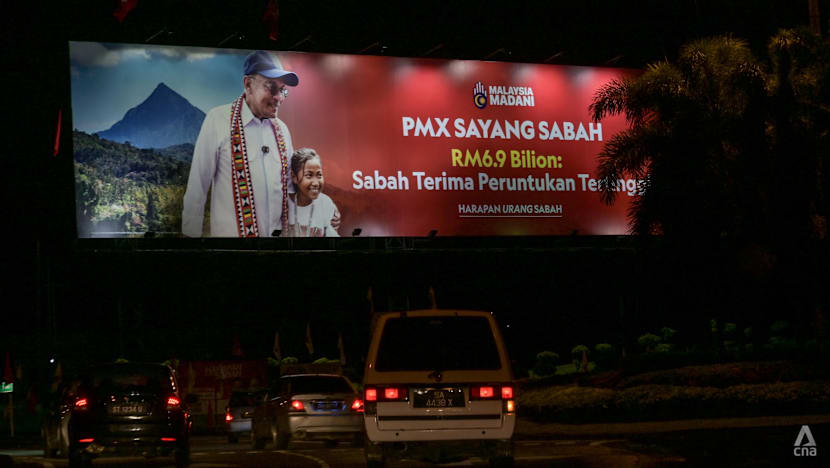
Anwar’s Parti Keadilan Rakyat (PKR), which leads PH, is vying for 21 seats, up from seven in the 2020 polls.
“They (the Sabah PH chapter) are complaining there are too many West Malaysians coming in and telling them what to do, and they don't like it,” Chin said.
“The BN campaign is not doing well because some have said that (Sabah BN chairman) Bung (Moktar Radin) is not leading a good campaign. And also some of the senior Sabah UMNO people do not want to cooperate with Bung.”
Bung Moktar had sparked a rift in Sabah UMNO when he tried to topple the incumbent GRS government in 2023.
The peninsula-based opposition coalition Perikatan Nasional will be contesting 42 seats in the upcoming elections, fielding candidates from component parties Parti Pribumi Bersatu Malaysia (Bersatu) and Parti Islam Se-Malaysia (PAS). Bersatu won 11 seats while PAS did not win any at the 2020 Sabah polls.
Issues of state nationalism, alongside the significance of personality politics in Sabah, mean local parties and independent candidates are capable of clinching seats, analysts said, even as multi-cornered fights that split votes will likely favour the incumbent candidate.
“Interestingly, parties like KDM and the ‘Black Wave’ (movement of independent candidates) are also expected to win a few seats,” UMS’ Lee said, highlighting that KDM acting president Priscella Peter was making good progress in the interior seat of Melalap, which will host a fierce eight-way fight that includes STAR and UPKO.
“It all depends on their ability to sustain the campaign's momentum until the last minute.”
These parties hold considerable sway in Sabah’s rural interior seats where the native Kadazandusun Murut reside. The term is used to describe the non-Muslim indigenous communities in Sabah, who make up a significant portion of the population.
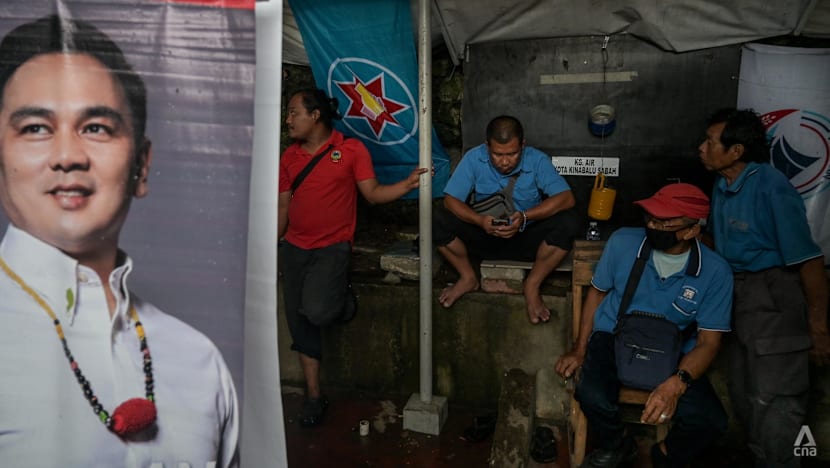
HOT BUTTON ISSUES
Issues framed around “Sabah for Sabahans” and “local party versus national party” remain “highly salient” among voters, said Arvin Tajari, a senior lecturer from Universiti Teknologi MARA (UiTM) Sabah.
“This has become even more pronounced following the recent High Court ruling affirming Sabah’s entitlement to 40 per cent of federal revenue collected in the state,” he told CNA.
The Kota Kinabalu High Court in October ruled that the Malaysian federal government had acted unlawfully by failing to fulfil Sabah’s right to 40 per cent of federal revenue derived from the state for nearly 50 years.
The court also ordered an agreement be reached on Sabah’s 40 per cent share of federal revenue for each financial year from 1974 to 2021, with the process to be completed within 180 days.
Anwar, who is also finance minister, has insisted that the federal government gives more to Sabah each year than the revenue it collects from the state, though critics said he is conflating Sabah’s rightful entitlement with mandatory federal allocations for every state.
Around Kota Kinabalu’s main thoroughfares, it is hard to miss large billboards of Anwar embracing a Sabahan child with bold words spelling out his “care” for Sabah.
At least one billboard highlighted that Sabah received the highest allocation of RM6.9 billion among Malaysia’s states, the figure announced in Budget 2026 to close Sabah’s development gap, especially in basic infrastructure.
Arvin of UiTM feels the main issues dominating the campaign are water supply, electricity and road infrastructure.
“These are not new concerns but longstanding problems that Sabahans have faced for decades,” he said.
“The government’s failure to adequately resolve these issues has become a key point of attack for opposition parties, particularly against the GRS government led by Hajiji Noor.”
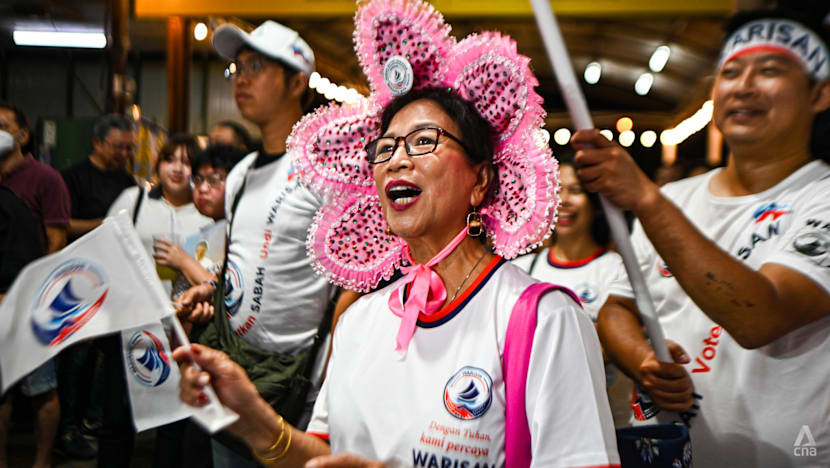
ONLINE CAMPAIGNS AND THE YOUTH VOTE
Political parties, especially the opposition, are actively using social media platforms to spotlight infrastructural shortcomings under the GRS-led government, analysts said.
“The online campaign space appears to be more influential in shaping voter perceptions for this state election,” Arvin said.
The youth vote could be a decisive factor in this election, with data from the Election Commission showing nearly 54 per cent or 960,000 voters are aged between 18 and 39.
The implementation of Undi18 in 2021, which automatically registered citizens aged 18 and above as voters, makes the Nov 29 election the first real gauge youth voting trends and preferences in shaping Sabah’s political direction.
With widespread access to social media, young voters are increasingly aware of current issues, particularly those directly affecting Sabah, Arvin added.
Even so, Romzi of UMS said the influence of youth voters seems “overstated” as parties continue to prioritise broader issues, and lack credible youth-centric policies or engagement.
Sabah voter Rodiahtul Ardawiyah Julasri, 25, told CNA that while long-standing issues such as infrastructural failures and employment challenges remain key concerns, candidates and political parties so far have “no real strategy” to engage young voters like her.
“The fact is that most parties offer the same things, following the same storyline (in their manifestos and speeches); the only differences are the amounts of money or support promised,” said the master’s student from the Karambunai constituency near Kota Kinabalu.
“There is no ‘wow’ factor for us … everything still follows old-fashioned campaigning - house-to-house visits, putting up posters.”
She said that key issues such as water, roads and electricity remain unsolved in Sabah and should not always be politicised as they are “basic necessities that Sabahans deserve”.
“For me, to attract young voters, candidates should focus on their own abilities without attacking other candidates or rival parties,” added Rodiahtul.
Rodiahtul’s Karambunai constituency will see an 11-way contest featuring parties such as GRS, Perikatan Nasional (PN), Warisan and BN.
In the 2020 election, incumbent Yakub Khan of BN narrowly retained the seat, winning by a razor-thin majority of only 16 votes against Warisan candidate Ahmad Jais Otong, who is also contesting this time.
“I would choose a candidate I’ve seen actively involved in my constituency, instead of a candidate from a party I like who only appears during campaign season,” Rodiahtul said.
“Even if the party wins a simple majority and appoints a good chief minister, what is the point if the representative for my constituency cannot deliver for the local community?”
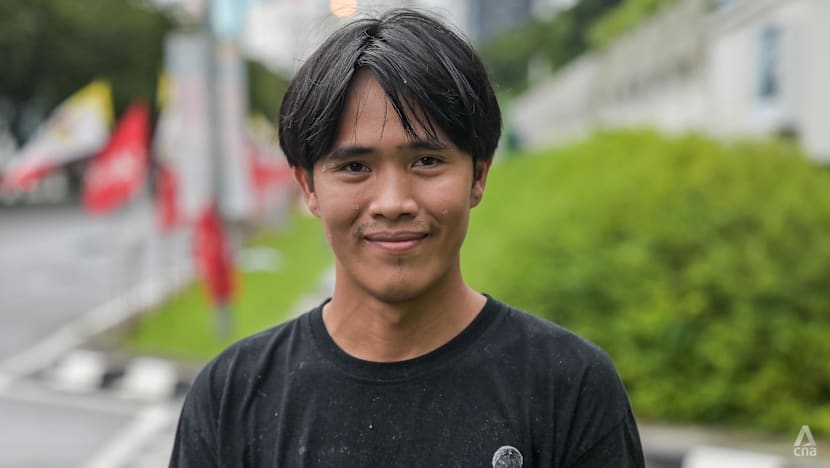
Along a pockmarked pavement in the centre of Kota Kinabalu, first-time voter Jalipius Nipoh, 23, took large strides to sidestep deep puddles that had formed in the rain.
The diploma student, who will vote in Nabawan constituency, told CNA he has narrowed down his choice among nine candidates to two parties.
But deciding between them has proven difficult because of a disparity in the sentiments he sees online compared to his experiences on the ground.
GRS incumbent Abdul Ghani Mohamed Yassin, who won the seat in 2020 under a Parti Pribumi Bersatu Malaysia (Bersatu) ticket, will defend it against candidates from parties like Warisan and BN.
Jalipius disagreed that Sabah needed to be governed exclusively by local parties to prosper, saying he prefers to assess individual party leaders.
“Some people say Malaya parties don’t help us, but the issue is that in our village, BN has helped the most,” he said, referring to peninsular parties.
Jalipius, who gets information on the election from family members and social media, observed that some parties tend to bring up “old issues” to discredit rivals online, like Warisan’s alleged sympathy towards illegal immigrants.
When asked about the latest developments in the mining corruption scandal, he said “politics is one thing and corruption is another”.
“Those who benefited from corruption need to be investigated. We need to see who helps Sabah the most,” he added.





















